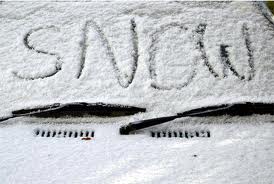HARRISBURG – State officials are urging the public to pay attention to forecasts calling for heavy snow across the eastern half of Pennsylvania, with snowfall to begin Wednesday night and continue into Thursday.
“It has been a challenging winter for Pennsylvania as we’ve been impacted by frequent storms, but the commonwealth stands at the ready as we prepare for another significant snowfall,” said Glenn Cannon, director of the Pennsylvania Emergency Management Agency.
“With heavy, wet snow in the forecast and possible ice, residents should prepare for potential power outages by making sure they have adequate supplies in their homes.”
Cannon said a home emergency kit should allow a household to survive without outside assistance for at least three days and include basics such as: one gallon of water per person per day; non-perishable food; extra medication; battery-operated radio and flashlights; first aid kit; and any special needs items such as baby and pet supplies.
In areas where forecasts are calling for significant snow and possible icy conditions, motorists should postpone travel whenever possible. Those who travel in adverse conditions should ensure that their vehicle has a full tank of gas and an emergency kit packed. The kit should include warm clothing, blankets, non-perishable food and water, and any needed items such as medications and baby and pet supplies.
For individuals who must travel, incident and construction information is available for all 40,000 miles of state-owned roadway atwww.511PA.com. The Web site also provides access to traffic cameras as well as winter road conditions for 2,900 miles of roadway.
Cannon said power outages are again a concern with this storm, and people who remain in their homes without power should be aware of the dangers of carbon monoxide poisoning. Carbon monoxide is an odorless, colorless, tasteless gas that is produced by generators, lanterns and gas ranges.
- Don’t use a generator, charcoal grill, camp stove, or other gasoline or charcoal-burning device inside your home, basement, or garage or near a window.
- Don’t run vehicles, generators or snow blowers inside a garage attached to your house, even if you leave the door open.
- Don’t heat your house with a gas oven.
- If you suspect you’ve been exposed to carbon monoxide, open the windows if possible, leave the home or building immediately and call 911 or seek medical attention. Carbon monoxide can incapacitate victims before they’re aware they’ve been exposed.
“Staying in a cold home without power during winter can lead to another potentially deadly condition called hypothermia,” said Secretary of Health Michael Wolf. “Hypothermia occurs when someone’s body temperature is very low. If you suspect that someone has it, take their temperature and make sure they get immediate medical attention if it is below 95 degrees.”
Infants and older adults are most at risk of getting hypothermia and should be checked frequently. Symptoms in adults include shivering and exhaustion, confusion, fumbling hands, memory loss or slurred speech, and drowsiness. Warning signs in infants include bright red, cold skin and very low energy.
“Pennsylvanians should also be careful when removing heavy snow that might be left behind by the storm,” added Wolf. “If you are shoveling snow and experience chest pain, shortness of breath or any other symptoms of a heart attack, get immediate medical attention or call 911.”
Wolf provided these additional tips to make snow removal safer:
- Dress appropriately.
- Consider shoveling in shifts instead of all at once.
- Take breaks and drink water to prevent dehydration.
- When possible, push snow instead of lifting it. If you must lift, bend your legs and not your back.
- If using a snow blower, be sure to read and follow all safety instructions and stay aware of others who may be nearby.
The commonwealth’s ReadyPA campaign encourages citizens to take three basic steps before an emergency occurs: Be Informed, Be Prepared, Be Involved. More detailed information, including downloadable emergency kit checklists and emergency plan templates, is available online at www.ReadyPA.org.
